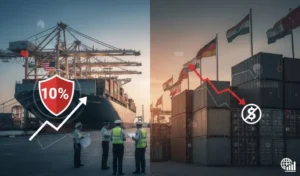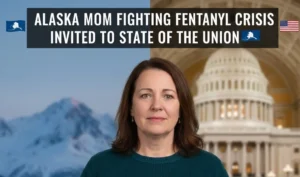Officials from China, Canada, and Mexico have reacted strongly to Trump’s tariff pledge, warning of severe economic consequences. Mexico’s President Claudia Sheinbaum criticized the plan, saying retaliatory tariffs would jeopardize mutual businesses while addressing illegal immigration and drug issues.
On Monday night, Trump pledged to impose 25% tariffs on imports from Mexico and Canada and an extra 10% on Chinese products. He stated that these actions will stop drug trafficking and illegal immigration.
Justin Trudeau, the Prime Minister of Canada, spoke with Trump right after the announcement about the possible consequences and his intention to meet the provincial leader to formulate a response. Later, the leaders criticized the plan, warning it would hurt economies on both sides. Deputy Prime Minister Chrystia Freeland highlighted Canada’s vital role in supplying resources like electricity, oil, critical minerals, and metals.
Sheinbaum declared that if Trump’s proposal proceeds, Mexico will apply its taxes on American goods. She also said that the automobile sector, which relies heavily on Mexican and Canadian manufacturing, will be affected the most. “If tariffs go up, who will it hurt? General Motors,” she said.
China also condemned the proposal with the embassy spokesman Liu Pengyu, rejecting accusations that China enables fentanyl smuggling into the U.S. He emphasized the Mutual benefits of China-U.S. trade and called this trade war counterproductive.
Following the announcement, the Canadian dollar hit its all-time low value since 2020, reflecting market concerns about Trump’s aggressive approach to trade policies. Mexico’s peso also plummeted, highlighting fears of widespread economic disruption. Leaders from all three nations stressed the need for measured responses related to Trump’s tariff pledge to avoid long-term harm.










